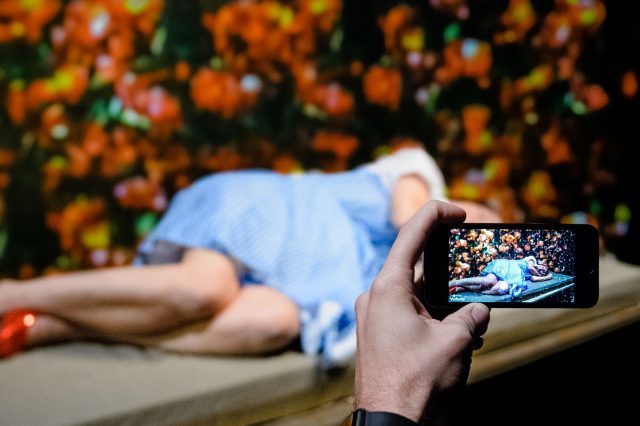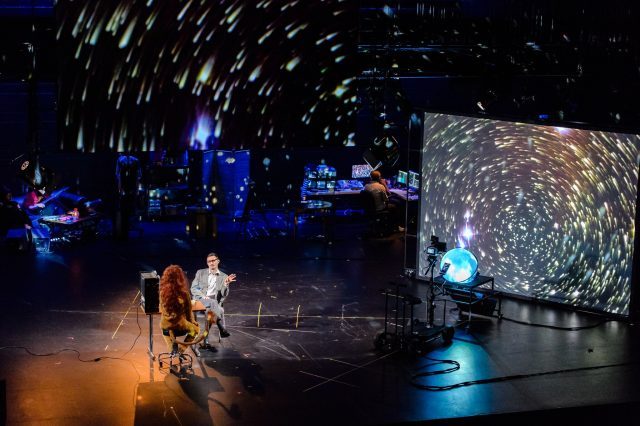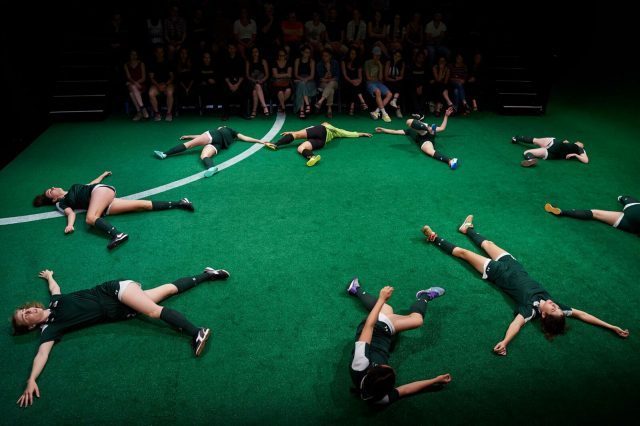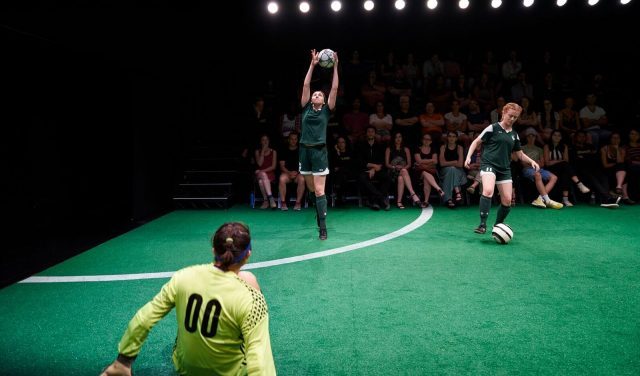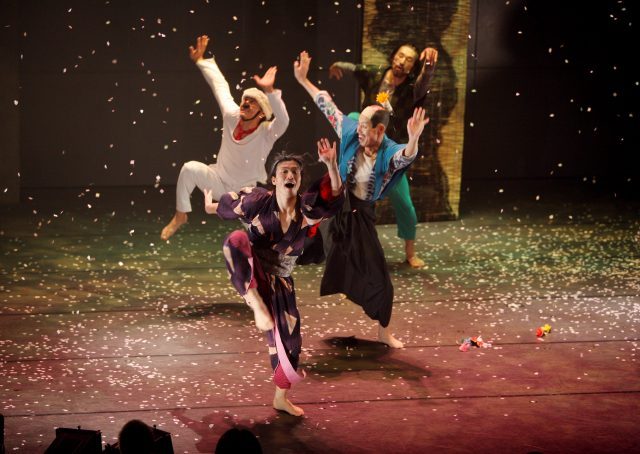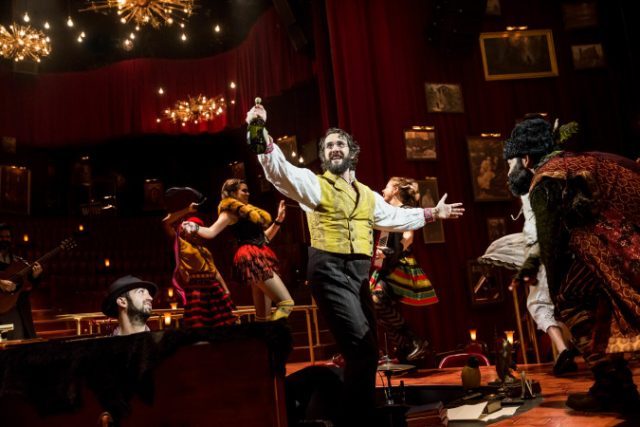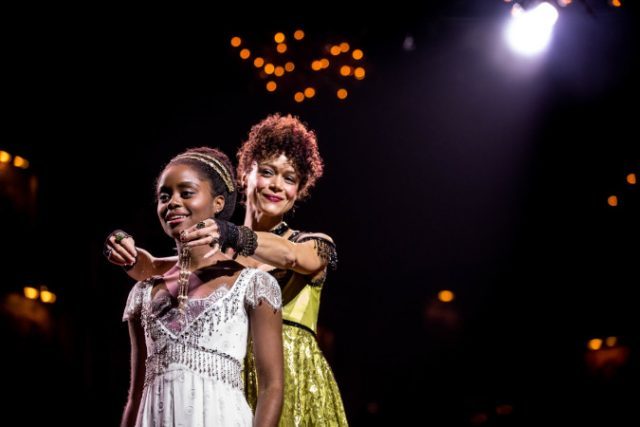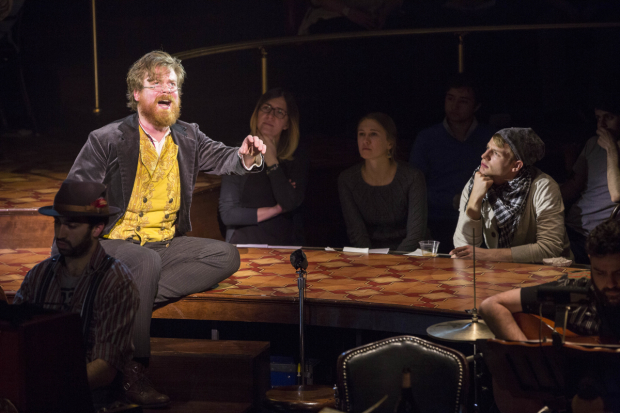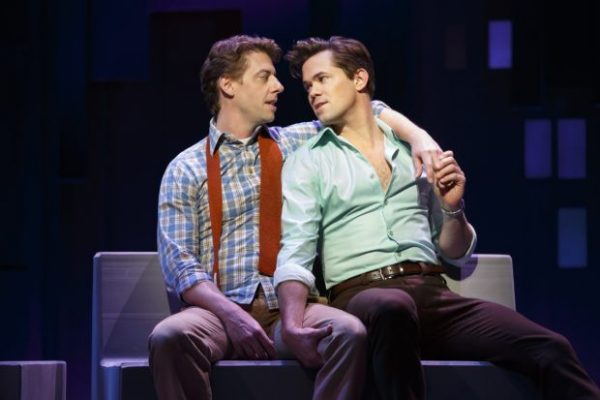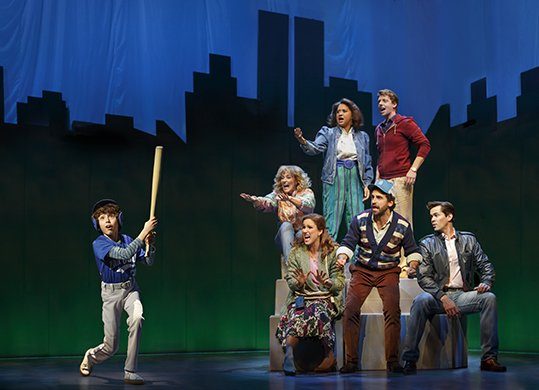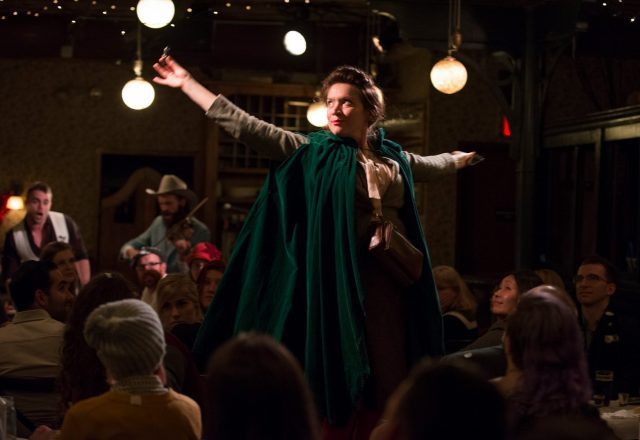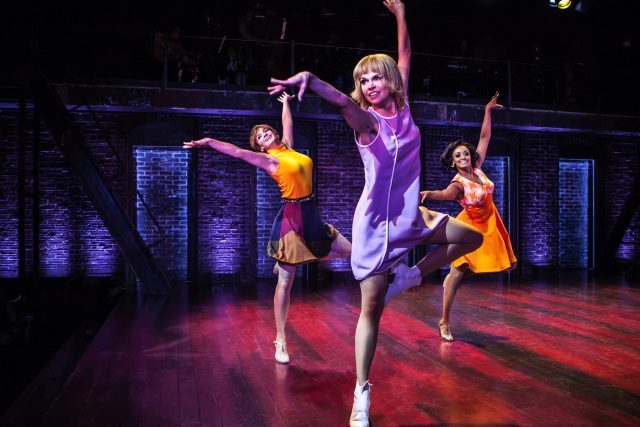
Fandango dancers Charity Hope Valentine (Sutton Foster), Helene (Emily Padgett) and Nickie (Asmeret Ghebremichael) hope there’s something better than this in SWEET CHARITY (photo by Monique Carboni)
The New Group at the Pershing Square Signature Center
The Romulus Linney Courtyard Theatre
480 West 42nd St. between between Ninth & Tenth Aves.
Tuesday – Sunday through January 8, $30-$115
www.thenewgroup.org
Sutton Foster is dazzling in the title role of the New Group’s intimate and fun fiftieth-anniversary streamlined production of Sweet Charity, which has been extended at the Pershing Square Signature Center through January 8. Foster, who has been nominated for six Tonys, winning two (Thoroughly Modern Millie and Anything Goes), is reunited with fellow Tony winner Shuler Hensley (Oklahoma!); the two previously worked together in Young Frankenstein, in which Foster played Inga and Hensley was the Monster. Here they play another iteration of Beauty and the Beast, with Foster as the adorable Charity Hope Valentine and Hensley as the schlubby but likable Oscar Lindquist. The show is set in 1960s New York City, where Charity works as a dance-hall hostess at the Fandango, sometimes doing more than just the foxtrot with strangers while always dreaming that someday her prince will come. Joining her at the Fandango are Nickie (Asmeret Ghebremichael), Helene (Emily Padgett), Elaine (Sasha Hutchings), and new girl Rosie (Hutchings), who all have dreams of their own.
Early on, all the dancers sing, “The minute you walked in the joint / I could see you were a man of distinction / A real big spender,” with Nickie and Helene later adding, “I can show you . . . a good time.” After giving all her money to a panhandler, Charity somehow ends up in the arms of Italian movie star Vittorio Vidal (Joel Perez), who is in the midst of a terrible fight with his girlfriend, the high-maintenance Nikka Graff Lanzarone (Ursula), leading to one very unusual night. But Charity’s life changes when she gets stuck in an elevator at the 92nd St. Y with the meek Oscar. “Hey! You don’t have claustrophobia, do you?” Charity asks. Oscar replies, “Oh, no. No. No, nothing like that. Claustrophobia? No . . . I just don’t like to be in small, tight places that I can’t get out of.” Soon a charming romance blossoms, but Charity’s past lingers close behind.
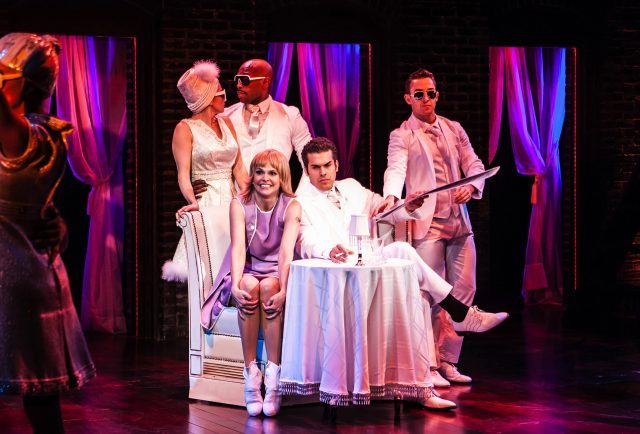
Charity (Sutton Foster) can’t believe she’s hanging out with Italian move star Vittorio Vidal (Joel Perez) in SWEET CHARITY (photo by Monique Carboni)
The musical’s past lingers as well. Sweet Charity was based on the screenplay of Federico Fellini’s Oscar-winning 1957 film, Nights of Cabiria, written by Fellini, Tullio Pinelli, and Ennio Plaiano; the Italian classic starred Fellini’s wife, Giuletta Masina, as an unforgettable luckless prostitute. The musical debuted on Broadway in 1966, directed and choreographed by Bob Fosse and featuring his wife, Gwen Verdon, as Charity and John McMartin as Oscar, with music by Cy Coleman, lyrics by Dorothy Fields, and book by Neil Simon. Fosse directed and choreographed the 1969 film, which cast Shirley MacLaine as Charity, McMartin again as Oscar, Ricardo Montalban as Vittorio, and Chita Rivera as Nickie. (Other onstage Charitys have included Debbie Allen, Molly Ringwald, Ann Reinking, and Christina Applegate.) Foster, looking like a cross between Judy Carne and Twiggy in Clint Ramos’s powder-blue minidress, is a memorable Charity, making endlessly adorable faces reminiscent of Masina’s smiles and pouts with those puppy-dog eyes, no matter how much life throws at her, and it throws a whole lot. The supporting cast is solid, especially Perez, who plays Vittorio in addition to Fandango manager Herman, Charity’s boyfriend Charlie, and Daddy Brubeck of the Rhythm of Life Church.
Derek McLane’s spare set is often nearly empty, with chairs and tables occasionally wheeled on and a brick wall in back that opens on dressing rooms and closets. The audience sits up close on three sides, with the cast entering and exiting through the crowd. The outstanding all-woman band — music director and keyboardist Georgia Stitt, bassist Lizzie Hagstedt, drummer Janna Graham, reed player Alexa Tarantino, guitarist Elana Arian, and cellist Nioka Workman — perform Mary-Mitchell Campbell’s contemporary orchestrations on the balcony behind the stage. Several set pieces fall flat — “The Rhythm of Life” feels completely out of place and time, and “I’m a Brass Band” is not the showstopper it is meant to be — and Joshua Bergasse’s (On the Town, Cagney) choreography is limited and repetitive, at least partly because of the small stage. But director Leigh Silverman (Chinglish, The Madrid), who worked with Foster on Violet, otherwise embraces the space with this warm and cozy production, in which the audience can nearly reach out and touch the performers. Other highlights are Foster’s “If My Friends Could See Me Now,” Padgett, Ghebremichael, and Foster’s “There’s Gotta Be Something Better Than This,” and the company’s “Where Am I Going?,” which has been moved to the finale. It’s a mostly golden production for its golden anniversary, centered by a glorious performance by one of the theater’s brightest, most engaging stars.
